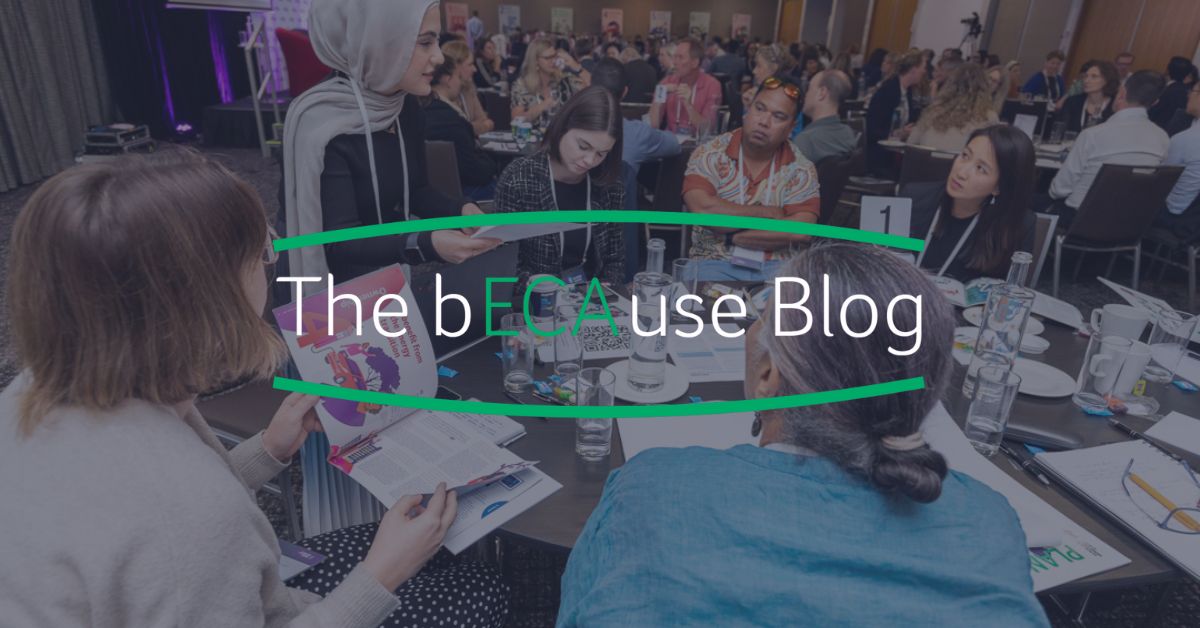If you would like to subscribe to the Energy Consumers Australia mailing list please click here.
From the CEO
Dear Readers,
As we move into March, it has been a time of both reflection on what we learned from the challenges of 2020 and a time to plan our work for the year ahead here at Energy Consumers Australia. While our new normal means that we continue to work from home it was energising to get everyone together as a team for the first time in twelve months for a strategy and planning session over two days in Coogee, Sydney during February. We will be sharing the results of this planning with our stakeholders in the coming months. I know that we are not alone in finding that the pace of work is accelerating, not slowing. This means that a greater effort on our part is needed to make sure that we focus on where we can most make a difference in shaping the future energy system to benefit households and small businesses.
The Energy Security Board’s Post 2025 Market Design package
We are continuing to work closely with our consumer colleagues and the Energy Security Board (ESB) on the Post 2025 Market Design package, supporting participation by a range of consumer organisations in workshops as well as joining other advocates participating in the Technical Working Group and the Advisory Working Group. The ESB will release a Market Design Options Paper for wider public consultation later this month, that includes four key reform areas to address system security challenges:
- Resource Adequacy Mechanisms and Ageing Thermal Transition
- Essential System Services and Scheduling Ahead Mechanisms
- Transmission and Access
- Demand side participation.
The aim is for the ESB to have final recommendations and an implementation program by June 2021.
We are particularly focussed on the challenge of moving from today’s system where uncoordinated generation from rooftop solar systems is creating issues for the management of the electricity power system. We aim to move towards a future in which new business models offer services that unlock the value from those households and small businesses that can manage the timing of their use of appliances, generation and storage (including hot water systems or electric vehicles). Our approach is to start with understanding how people could engage in a future energy system that rewards this flexibility, and what might their preferred experience be? Through two workshops, in collaboration with the ESB, that were led by Professor Cameron Tonkinwise, we explored with advocates and the ESB stakeholders how people might engage with interventions to better balance supply and demand at a time when solar generation is high.
We have further explored these issues in a report commissioned from CutlerMerz titled Social Licence for Control of Distributed Energy Resources (DER). How government and industry secure consumer and community support to manage these new resources in a trusted way that creates value for the owners and the community as a whole is key to a successful transition. This report dives into these issues and provides a framework to facilitate DER integration by establishing trust with customers and ensuring the program benefits are distributed in a fair way.
To introduce you to the report we will be running a webinar on March 23rd at 11:00am. Hosted by our Director, Strategic Reform Chris Alexander, with panellists Melanie Koerner (CutlerMerz), Violette Mouchaileh (Australian Energy Market Operator), Jo Witters (ESB), Vince Duffy (South Australian Department for Energy and Mining) and yours truly, we will be exploring the issues and opportunities presented in the report. Keep an eye on our channels over the coming days for the release of the report and the link to register for the webinar.
We often look to the work of colleagues internationally in sharing their experiences of navigating the energy transition. In a recent paper published in Nature Energy, a paper by Dr Jeffrey Hardy amongst other authors explores how affluent, educated homeowners are more likely to participate in new energy services that utilise technology to manage energy use and generation. The authors point to the necessity for intervention if existing social inequalities are not to be exacerbated, and in our words to secure a fair and just transition. Dr Hardy was the keynote speaker at our Foresighting Forum 2020, and you can find a recording of his sessions here.
Influencing change through our policy and advocacy work
We were kept very busy working on policy and advocacy issues during the month of February.
We made a submission to the Australian Energy Market Commission (AEMC) on their Review of the Regulatory Framework for Metering Services Consultation Paper. While smart meters are key enablers of a new energy services market, we encouraged the AEMC to consider the necessary reforms to the smart meter framework which should focus on the consumer experience and benefits that are yet to materialise. Prior to drafting our submission, we valued the opportunity to meet with advocates to share consumer perspectives on their experiences with smart meters.
After an intense period of engagement with advocates and the Australian Energy Regulator’s (AER) Consumer Challenge Panel on the gas businesses revenue determinations in the ACT and SA, we made a submission on the revised revenue proposals. The revised proposals from Evoenergy and AGN (SA) are closer to being considered capable of acceptance and we used our submission to focus on the impact this transition will have on consumers. The critical issue is the uncertainty about how emissions reduction goals will impact on gas customers, as gas use in the home may be phased out as part of public policy changes. Specifically, there is a risk to the most vulnerable energy consumers – those who don’t have the capacity to pay or to switch to alternative forms of energy – footing the bill for increased costs. These issues will be even more critical when the access arrangements for gas distributors in Victoria are considered, which will kick off in July 2021.
We welcomed a draft determination from the Australian Energy Market Commission (AEMC) in February which rejects a proposal to bring forward the costs for consumers of investing in new transmission capacity between South Australia and New South Wales. Though this project is critical to exporting electricity into New South Wales, sourced from renewable generation in South Australia, there needs to be a better way of financing this capacity than having consumers pay upfront, in advance of the capacity being brought on-line. There are other concerns that we have raised about the timing of benefits, and across the jurisdictions there are concerns voiced by consumer groups about the allocation of costs between the regions being served, which were not part of this financeability rule change.
The importance of storage in the future energy system is widely recognised, and new investment is expanding rapidly. At the same time the potential benefits of local storage to combine with small scale generation deep in the distribution system is receiving greater attention – whether described as community or neighbourhood storage. Ausgrid launched the first community battery in New South Wales in February, marking the start of a two-year trial that aims to transform the way solar energy is stored. We were involved in the Network Innovation Advisory Committee and Customer Consultative Committee which helped shape this initiative and I want to send my congratulations to everyone involved. Victoria also recently opened consultations on its Neighbourhood Battery Initiative.
The AER recently published its Draft Determination for the Default Market Offer on (electricity) prices to apply from 1 July 2021, which is now out for consultation (closes 18 March 2021) and should cement in further price reductions. The AER’s latest Wholesale markets report show that calendar year annual wholesale electricity and gas prices were at their lowest levels since 2015. As these flow into retail prices, consumers can realise these savings in their bills if they engage with their retailers. In a recent report from the St Vincent de Paul Society’s retail tariff tracker project (funded through our Energy Consumers Australia’s Grants Program), it was found that households in Victoria, NSW, Queensland and South Australia could be paying up to $200 a year too much for their electricity. We know that calling an energy company can be daunting for some consumers, so we developed our PowerCall resource which has a step-by-step guide for consumers to talk to their energy company.
Our first Grants Program funding round of 2021 closed on 25 February, and we will be making an assessment of those projects for consideration by the Board at their meeting in April.
As a wonderful example of one of our grants at work, we interviewed Tessa Manning from Fourth&Centre who used an Energy Consumers Australia grant to create a shareable poster designed specifically for the Aboriginal community to assist them in managing their energy bills when COVID-19 first hit. This project demonstrates the power of tailored, relevant, and timely information for consumers, and represents best practice consumer communication. You can also view our full suite of ‘Great Grants’ here.
Changes to our team
In further news from our Grants team, we said goodbye to our colleague Jim Wellsmore during February. Jim was a bright and talented member of our organisation, bringing twenty years of experience in energy issues, both as a consumer advocate and then in government before joining us in 2016. He will be missed.
We have just closed applications for the recruitment of a new Grants Manager. This is a unique opportunity for the right candidate to drive our $2M grants program, whose purpose is to put residential and small business consumer interests first in energy market outcomes, by empowering external partners and evidence to influence decision-makers. We are now shortlisting applicants and look forward to starting the interview process.
We are also delighted to announce the appointment of a new Director of Communications and Stakeholder Engagement, Dan Silkstone, who will be joining us on March 15. Dan brings a fresh perspective and deep knowledge of communications, stakeholder engagement and the energy sector, having worked in communications, strategy and digital leadership roles at ARENA and global business consultancy ThinkPlace. Prior to this, Dan had a successful career at The Age, culminating in senior editorial roles and as a member of the Editorial Leadership Group.
Shelley Ashe, who many of you know from her engagement on network revenue determinations, will be embarking on a six month secondment to support our colleagues in the New South Wales Department, with the implementation of Minister Kean’s Electricity Infrastructure Roadmap.
Welcome and thank you to colleagues
We want to welcome Daniel Westerman, who will be the new head of the Australian Energy Market Operator in a few months time and is an Aussie returning home. We look forward to working with him, particularly on the distributed energy future, the opportunities and challenges for households and small businesses, and leveraging his insights from the UK.
Matt Garbutt who has ably led the team supporting the ESB on the Post 2025 Market Design package, will be missed in that capacity, but not forgotten as he joins the Victorian Department. Jo Witters and Suzanne Falvi who are already well regarded by consumer advocates have stepped into those shoes, at a critical time in this process.
I am sure many of you are aware of the Facebook news ban that took place during February. Our business page, though not a media site, was affected and though we are back up and running now, it has been an interesting insight into where many people get their news. On our side, we will continue to update our website regularly and send our monthly newsletters as our primary medium and ‘one true source’ of communication. If you know of anyone who might be interested in reading more from us, you can pass on the link to register here.
That’s it from me for this month, I am looking forward to engaging with you all further and hopefully seeing you at one of our upcoming webinars in the coming months.
If you have any questions or comments on any of our work, please feel free to email us and we will get back to you.
Lynne Gallagher
Chief Executive Officer

A Suite 2, Level 14, 1 Castlereagh Street, Sydney NSW 2000
Tw @energyvoiceau Ln /energyconsumersaustralia Fb /energyconsumersaustralia
News

Meet our new Director of Communications and Stakeholder Engagement
We are excited to announce the appointment of Dan Silkstone as our new Director of Communications and Stakeholder Engagement. Dan will lead our effort to enhance our communications capabilities at this critical time of transition in the energy sector, including our work to deepen engagement with stakeholders and develop best practice approaches to consumer engagement. Read the full story here.
Publications

Submission to the AER on the Evoenergy and Australian Gas Networks (SA) gas access arrangement revised proposals 2021-26
In our final submission to this series we add comment on the future of gas distribution networks and the impact this transition will have on consumers. Read our submission here.
More submissions
Grants
Energy Consumers Australia Great Grant of the Month
Watch our interview with Fourth&Centre Director Tessa Manning as she talks us through her COVID-19 Energy Bill Support Education for Aboriginal Households project which was selected as one of our Great Grants. A fantastic example of best practice consumer communication, click here to learn more.


